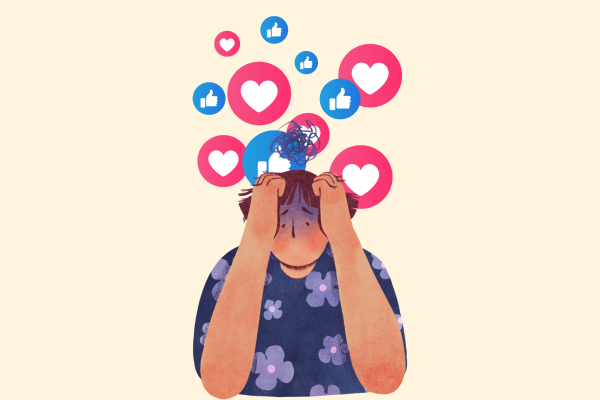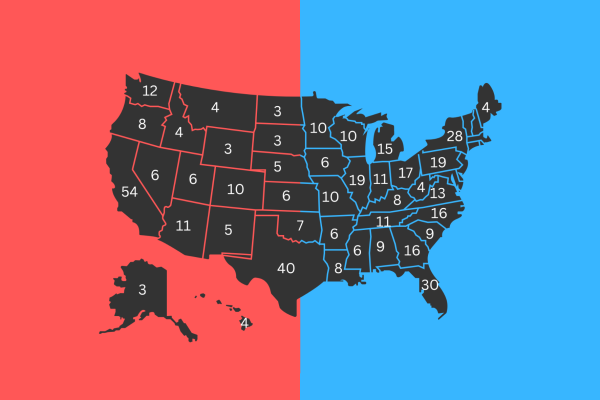Cancel Culture Needs to be Modified
Opinion

Cancel culture is used as a weapon by the masses, to get rid of support for content creators who have done problematic things. However, this action is not always justified, considering the complexities of people’s problems as well as the scale of them. Photo courtesy of Lewis Ogden
If you’ve been active on social media in the past couple of years, you may have noticed the rising trend of cancel culture. As the name of this movement suggests, cancel culture is the process of multiple people banding together to stop supporting a celebrity, influencer, or company deemed problematic. Since the creation of this trend in 2017, there has been much controversy over whether or not this trend provides a true sense of justice or is just the root of toxic internet shaming.
To get into the specifics of cancel culture, it basically takes place when a celebrity or media influencer with a high social status or influential social media platform either has controversial information leaked or does something distasteful to the public. The actual procedure of cancelling someone starts off with the immediate withdrawal of support from the platform followed by immense verbal backlash against said influencer. In many cases, this shaming process breaks down the person’s mental health as well as their reputation. Occasionally, if the person being cancelled has done something bad enough, the aggressors will even go as far as to contact the company they work for and demand they be fired.
A few of the most common justifications for cancellation include racism, pedophilia, controversial statements, politics, and harmful behavior. Some of the most famous examples of people and brands who have been cancelled for these very reasons include Shane Dawson (sexualizing minors), Jimmy Fallon (participation in blackface), Benji Krol (grooming minors), and Dollskill (stealing designs/child labor). Along with these examples, there are still many others.
One of the more recent cases of a famous figure being cancelled includes the author J.K. Rowling. Since the publishing of her hit book series, Harry Potter, Rowling has been expressing her transphobia quite freely in the media. During quarantine, she had been ridiculed for tweeting comments undermining trans people, stating that trans people removing the concept of sex, “removes the ability of many to meaningfully discuss their lives.” On Sept.15th, Rowling published her latest novel and received major backlash and claims that she was just adding, “more fuel to the fire.” Her new book, Troubled Blood, features a cross-dressing psychopathic serial killer. Many other authors and even some of the cast of the Harry Potter movies spoke out against her actions. People all over social media started to flood her DMs and posts with hate comments, and in the end, Rowling lost much support from her former followers.
Looking at this justification for cancelling someone makes this trend look like a pretty valid movement- however, that’s not always the case. Lately, people have been going too far with who they are picking to gang up against, and are abusing cancel culture. One of the most well known cases of over-dramatization of a so-called ‘scandal’ was the whole James Charles and Tati Westbrook quarrel back in 2019. The feud had started because Mr. Charles had sponsored a competing brand to Ms. Westbrook’s product line, making her feel, “betrayed”.
Although this was just a fight between two influencers, people quickly took Tati’s side in the argument and immediately began bashing not only Mr. Charles, but his new hit Morphe pallet as well. Many started the trend of videotaping themselves destroying or painting over the pallet for clout. I’m not quite sure if this whole ordeal should have been shared to the public in the first place because of the lack of relevance that their followers played in the matter. The entire situation was blown way out of proportion considering it was just a fight about a sponsorship between two former friends. Instead of focusing on cancelling more corrupt incorporations, people jump on these petty opportunities, cancelling people under a false sense of justice.
Cancel culture may be a good effort to knock people off of their high horse, but there are still instances where its power is being heavily abused. There are many who think that cancel culture is not the way to go about things and that stooping down to their level is just as bad as what they are doing. During an interview with previous U.S. President Barack Obama regarding the matter, he had stated that cancelling people is, “not activism,” and that it’s, “not bringing about change,” either. “If all you’re doing is casting stones, you’re probably not going to get that far,” Mr. Obama said.
I do agree with the fact that cancel culture is commonly abused. However, I also know that it’s taken down many corrupt people who did not deserve support whatsoever. The trend of cancelling people may be very toxic at times, but it also gives those who haven’t had the chance to be heard before a voice. It gives people the control that they crave in order to take down others who deserve to be put in their place, making cancel culture very easy to get drawn into. There are many improvements that need to be made to this system, but it’s not going away anytime soon. The most you can hope for is that people take the initiative to use this movement wisely.

I normally work on the yearbook but you might just catch me in the opinions or extras section if you're lucky ;)





